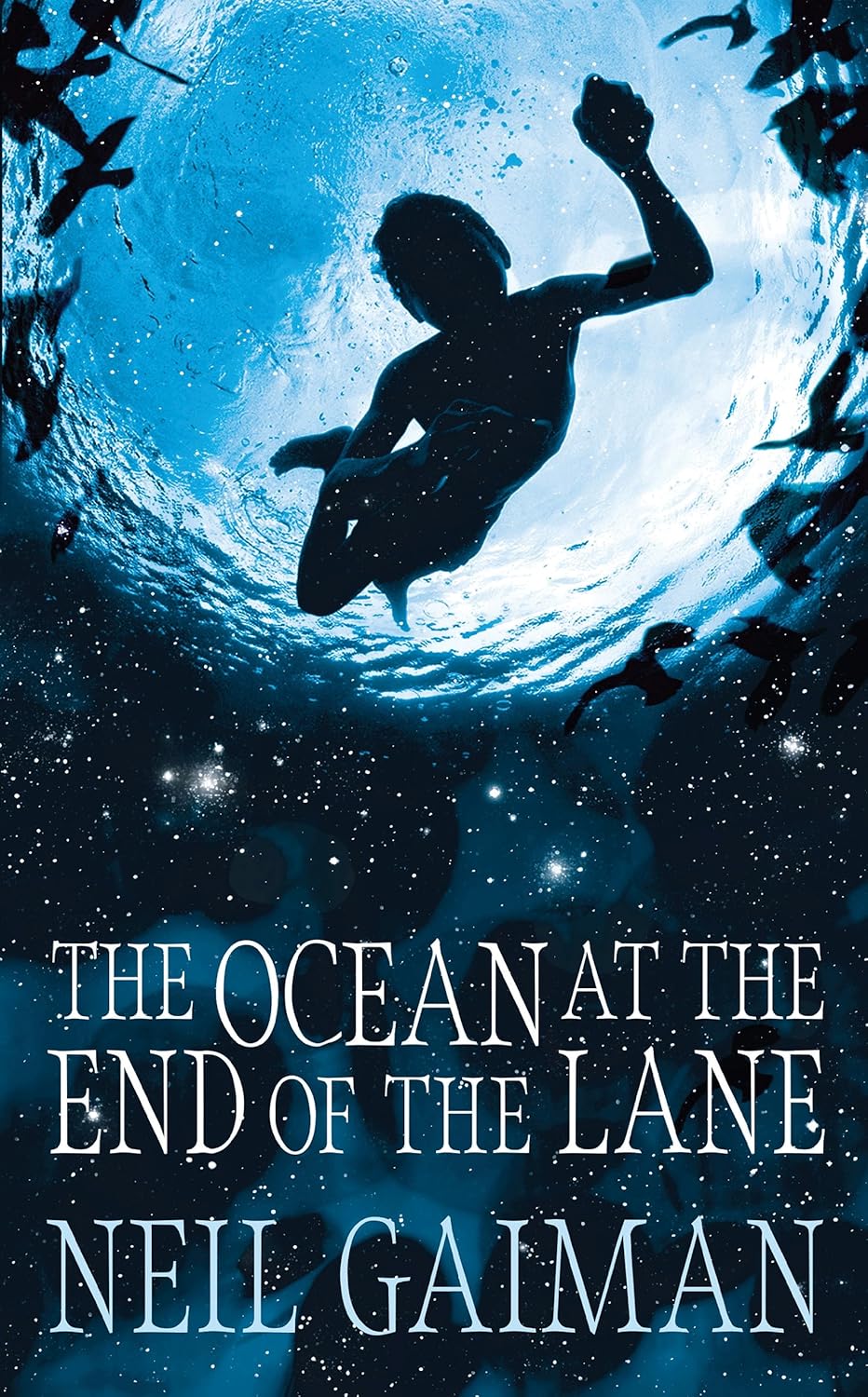Some books are a real pain in the bum to classify. Those of you who read my review of The Book Thief may remember the mini-rant that I went on at those people that classify simply as a Young Adult book, but I do admit that applying such labels is not an easy task. Bibliophiles are notorious for loving a good classification – my own book shelf is a triumph of division and sub-division – but sometimes it’s best to not think about these things too much.
Some books can be placed, others defy labels. Can a book written from the point of view of an adult ever be called a children’s book? Can one written through the eyes of a young child be put in a general fiction shelf? Neil Gaiman in his latest book The Ocean at the End of the Road certainly proves that the answer latter of those two questions is most definitely ‘Yes’
The Ocean at the End of the Lane is the first book for adults that Gaiman has written for nearly a decade, and it follows a young, timid and lonely boy who, through death of his cat and the suicide of a man who was lodging at his house, find his world transfigured as a dangerous yet familiar looking demon attempts to take over his life. While his parents and sister fall under its spell, he finds succour from a local family: three generations of women living together on a farm. The Hempstocks are seemingly his salvation, but to really combat his demons the narrator must face them himself.
Continuing with the theme of labels, I would argue that though most people would call this a fantasy book, it really is a work of Magical Realism. Indeed the only thing stopping it from being categorised as such really is that it is written in English and not the Spanish of the great Magical Realists such as Carpentier and García Márquez. For me, the difference between ‘Fantasy’ and ‘Magical Realism’ is that in a magical realist book, the author weaves the magical into our world, one where most of the characters are blissfully unaware. It must be rooted in reality, but have elements of the fantastic. This precludes books like the Harry Potter stories, the Chronicles of Narnia or A Song of Ice and Fire as these are works of pure fantasy.
As the tale is written from the POV of a child, we are encouraged to read it through the eyes of ourselves as children. It contains emotions and fears that when we were that young were very real to us: abandonment, loneliness, fear of the dark and unknown, yet also has many of the joys that we felt at that age: the inquisitiveness that so many of us lose as we grow old, the lust for adventure and the thrill of new friendships. I have never read a book that so successfully expresses what it means to be seven years old before. We were all that age once, but capturing it as adults is a very difficult task. Gaiman has succeeded brilliantly, and this is the greatest joy of reading this book.
Like most books of this nature, though the story is about the fantastic, it is grounded in some very real and primal concepts. The boy’s abandonment and even abuse by his manipulated parents brings a real element of terror into the story. His family comes under the influence of a demon in the form of an attractive au pair named Ursula Monkton. She terrifies and threatens the child, but the world of course is ruled by the adults so he is powerless to resist her. The only way to fight back is to use the powers of the supernatural, and to unlock that he needs Lettie Hempstock: the girl at the end of the lane.
The book itself is quite short and was originally designed as a short story. For me this is its only real weakness. The book is really all one single episode and you really feel that it is all still just an elongated short story. Perhaps a little sub-plot or two may have helped to flesh it out a little and could have made it even richer.
The entitled ‘Ocean’ of the book appears to the boy and to the rest of the world to just be a pond, but to the Hempstocks it is an ocean, a limitless expanse where one can transcend worlds – and that is a little about how I feel about this story. It is like a time-portal, transporting us to a condition that we once inhabited and reminding us that while we all eventually grow-up, we must never forget what it was like to be young and alive.
8.5/10
Favourite Quotes
“Grown-ups don't look like grown-ups on the inside either. Outside, they're big and thoughtless and they always know what they're doing. Inside, they look just like they always have. Like they did when they were your age. Truth is, there aren't any grown-ups. Not one, in the whole wide world.”
“Adults follow paths. Children explore. Adults are content to walk the same way, hundreds of times, or thousands; perhaps it never occurs to adults to step off the paths, to creep beneath rhododendrons, to find the spaces between fences. I was a child, which meant that I knew a dozen different ways of getting out of our property and into the lane, ways that would not involve walking down our drive.”
“I liked myths. They weren't adult stories and they weren't children's stories. They were better than that. They just were.”

No comments:
Post a Comment